August 27, 2024
Safeguarding Against The Four Main Triggers For Relapse
Discover the four main triggers for relapse in recovery and learn to build resilience for lasting change!
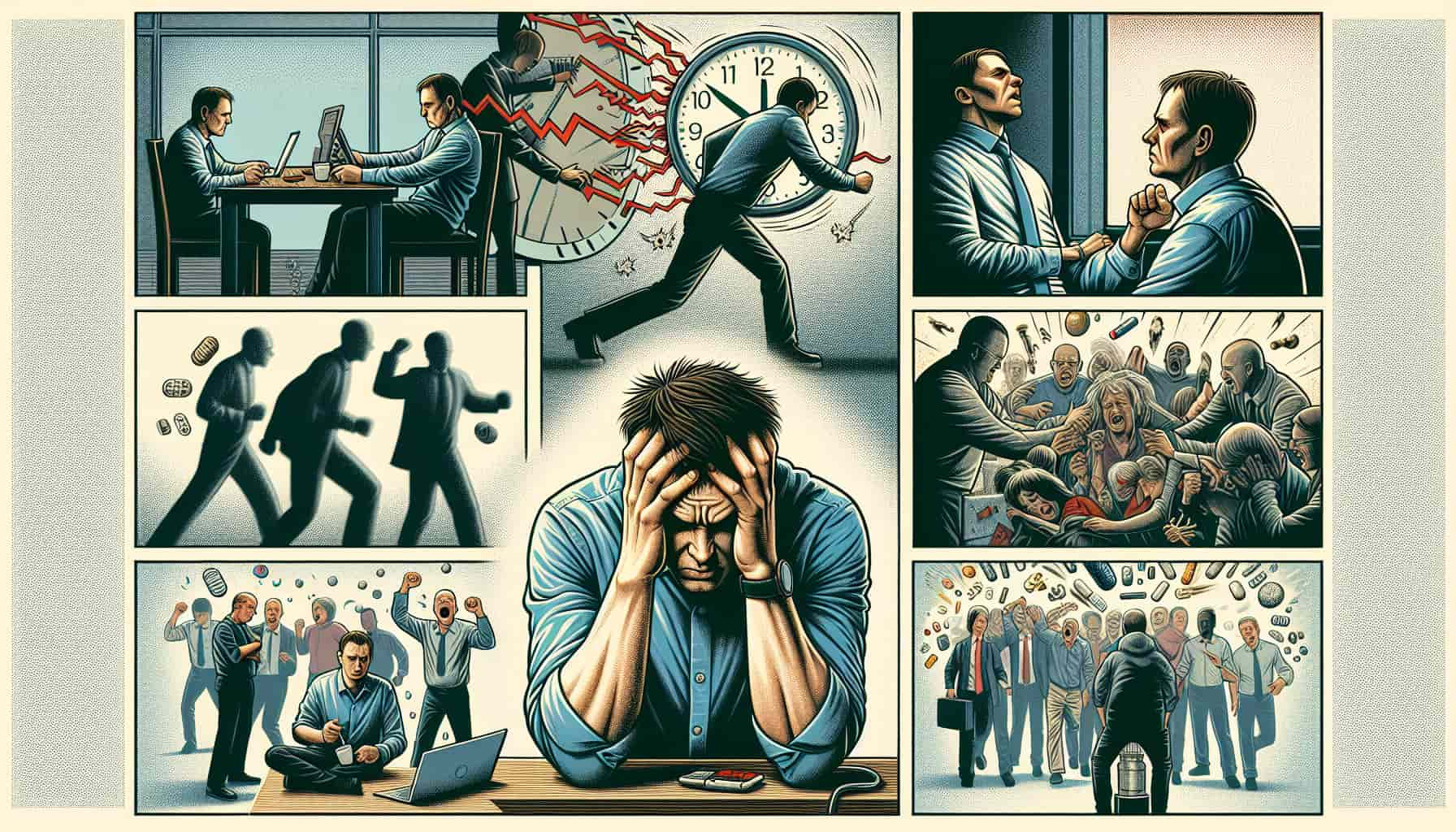
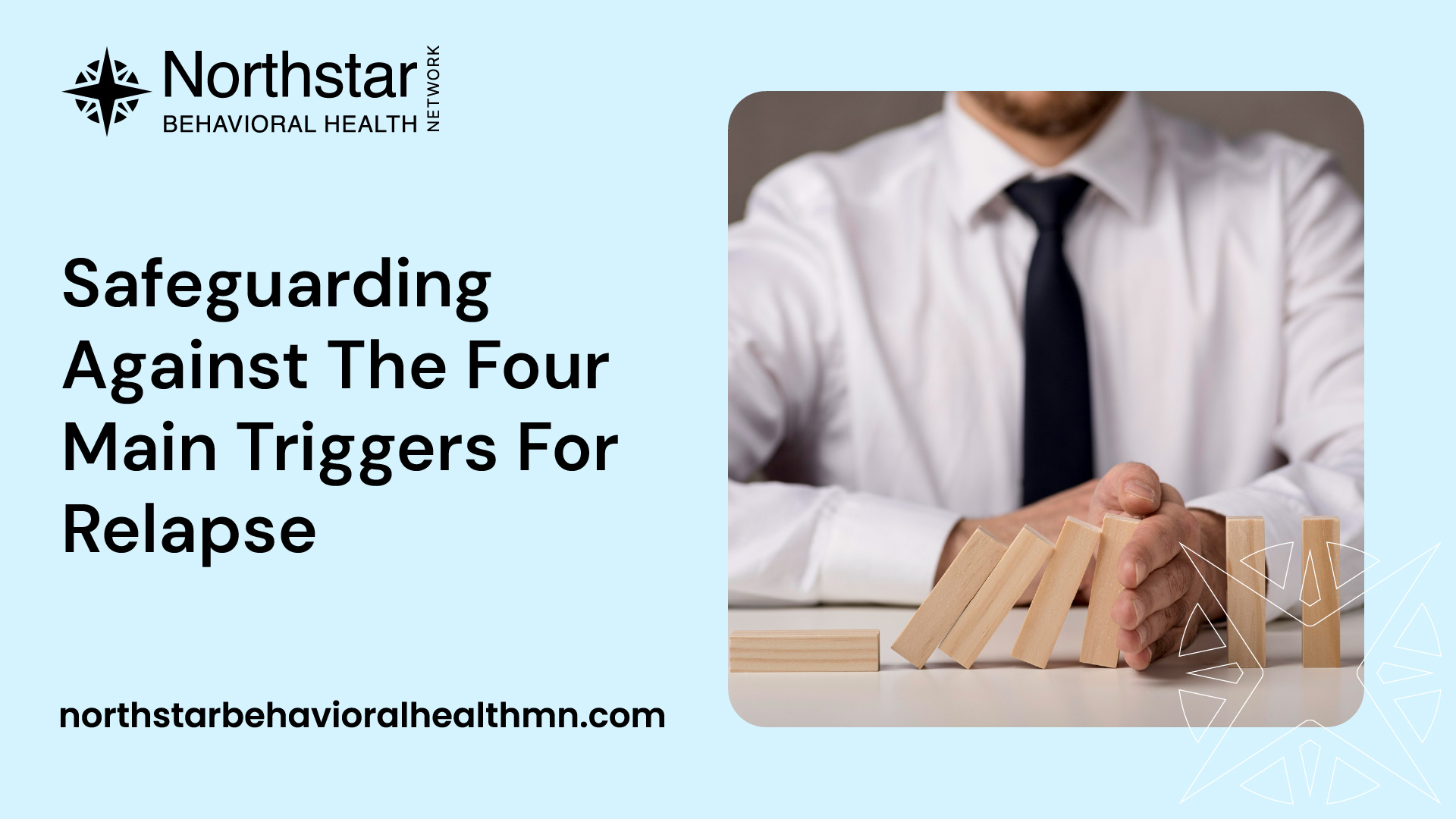
Understanding Relapse Triggers
Understanding the factors that can lead to relapse is crucial for anyone on the journey of recovery. Identifying these triggers allows individuals to develop strategies to manage them effectively. Recognizing what might lead to a setback can make a significant difference in maintaining long-term sobriety.
Importance of Identifying Triggers
Identifying triggers is essential for several reasons:
- Awareness: Knowing potential triggers helps individuals stay vigilant and prepared.
- Prevention: By anticipating challenges, they can create proactive strategies to avoid relapse.
- Support: Recognizing triggers can lead to better communication with support networks, helping to build stronger recovery plans.
Overview of the Four Main Triggers
There are four main triggers that often lead to relapse in recovery. Understanding these can empower individuals to navigate their journey more effectively.
Trigger & Description:
- Stress: High levels of stress can lead to old coping mechanisms being used, such as substance use.
- Peer Pressure: The influence of friends or social circles can encourage relapse, especially in challenging situations.
- Emotional Distress: Feelings of sadness, anger, or anxiety may drive individuals back to substances for relief.
- Overconfidence: Feeling overly confident in recovery can lead to complacency and a higher risk of relapse.
Each of these triggers can significantly impact an individual's recovery journey. By understanding the four main triggers for relapse in recovery, individuals can take proactive steps to safeguard their sobriety. For more insights into managing these challenges, consider exploring articles on related topics such as good news for treating opioid dependence or addiction is a family disease.
Trigger 1: Stress
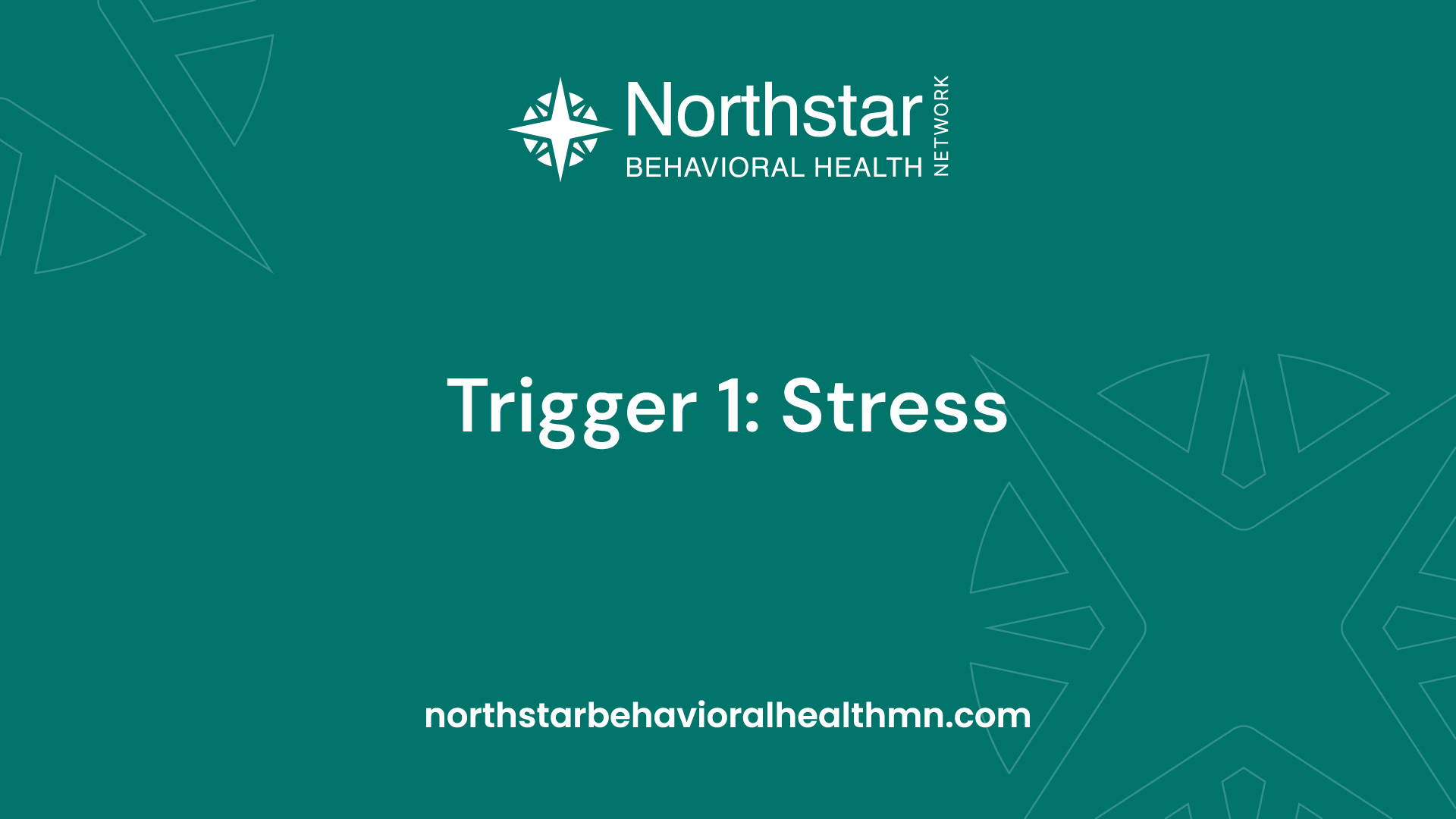
Stress is one of the most significant triggers that individuals in recovery may face. Understanding its impact and developing effective coping strategies is essential for maintaining long-term sobriety.
Impact of Stress on Recovery
Stress can have a profound effect on an individual's ability to stay committed to their recovery journey. High levels of stress can lead to feelings of anxiety and overwhelm, making it more challenging to resist cravings and maintain focus on recovery goals. Here’s a summary of how stress can affect recovery:
- Increased Cravings: Stress can trigger intense cravings for substances as a way to cope.
- Impaired Judgment: Under stress, decision-making abilities may diminish, leading to poor choices.
- Emotional Instability: Heightened stress can cause mood swings, making it difficult to manage emotions.
- Social Withdrawal: Individuals may isolate themselves, reducing supportive interactions.
Recognizing that stress is a common experience can help individuals understand the importance of addressing it proactively in their recovery.
Coping Strategies for Managing Stress
To combat stress effectively, individuals can adopt various coping strategies that promote resilience and emotional well-being. Below are some techniques that can be beneficial:
- Mindfulness and Meditation: Practicing mindfulness helps individuals stay present and reduce anxiety.
- Physical Activity: Engaging in regular exercise can boost mood and alleviate stress levels.
- Deep Breathing Exercises: Simple breathing techniques can calm the mind and body during stressful moments.
- Healthy Social Connections: Building a support network can provide encouragement and reduce feelings of isolation.
- Journaling: Writing down thoughts and feelings can help process emotions and reduce stress.
Incorporating these strategies into daily routines can create a strong foundation for managing stress, thereby reducing the likelihood of relapse. For more insights on overcoming addiction, explore Chris Herren’s “REBOUND”: A Journey of Overcoming Drug Addiction.
Trigger 2: Peer Pressure
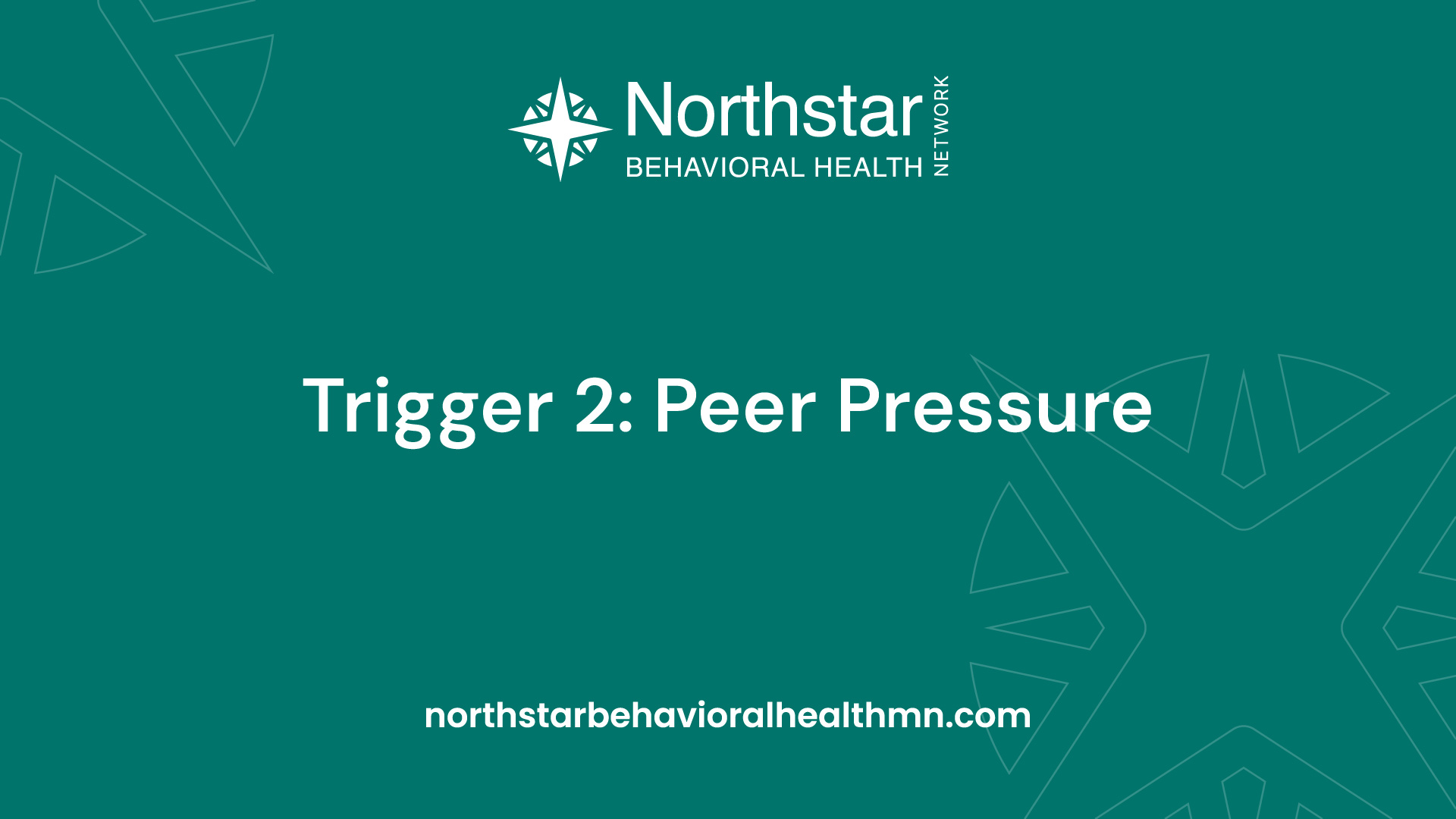
Peer pressure plays a significant role in the journey of recovery. It can challenge an individual's commitment to sobriety and may lead to a relapse if not managed properly.
Influence of Peer Pressure on Relapse
Peer influence is a powerful force, especially among those in recovery. Friends or acquaintances who engage in substance use can create an environment that makes it difficult for individuals to maintain their sobriety. The desire to fit in or feel accepted can lead to compromising one's goals and returning to old habits.
Research indicates that individuals in recovery who associate with peers who use drugs or alcohol are at a higher risk for relapse. Here’s how peer influence correlates with relapse rates:
Peer Influence Level & Relapse Risk (%)
- Low: 10%
- Moderate: 30%
- High: 60%
Recognizing the impact of peer pressure is crucial for individuals striving to overcome addiction. Identifying triggers associated with peer groups can empower them to make healthier choices in their social interactions.
Building a Support System
Creating a strong support system is essential for combating the effects of peer pressure. A reliable network of friends, family, and support groups can help individuals stay accountable and focused on their recovery goals.
- Seek Out Supportive Friends: Surrounding oneself with individuals who respect their recovery journey can provide encouragement and motivation.
- Join Support Groups: Participating in groups such as Alcoholics Anonymous or Narcotics Anonymous can foster connections with others who understand the challenges of recovery.
- Communicate Openly: Sharing feelings and experiences with trusted friends or family members can alleviate the burden of navigating peer pressure alone.
- Establish Boundaries: It’s important to set clear boundaries with individuals who may pose a risk to one’s sobriety. This may include limiting contact with those who engage in substance use.
By proactively building a supportive network, individuals can significantly reduce the risk associated with peer pressure. For more insights on addiction and family dynamics, check out our article on addiction is a family disease and learn how families can support their loved ones in recovery.
Trigger 3: Emotional Distress
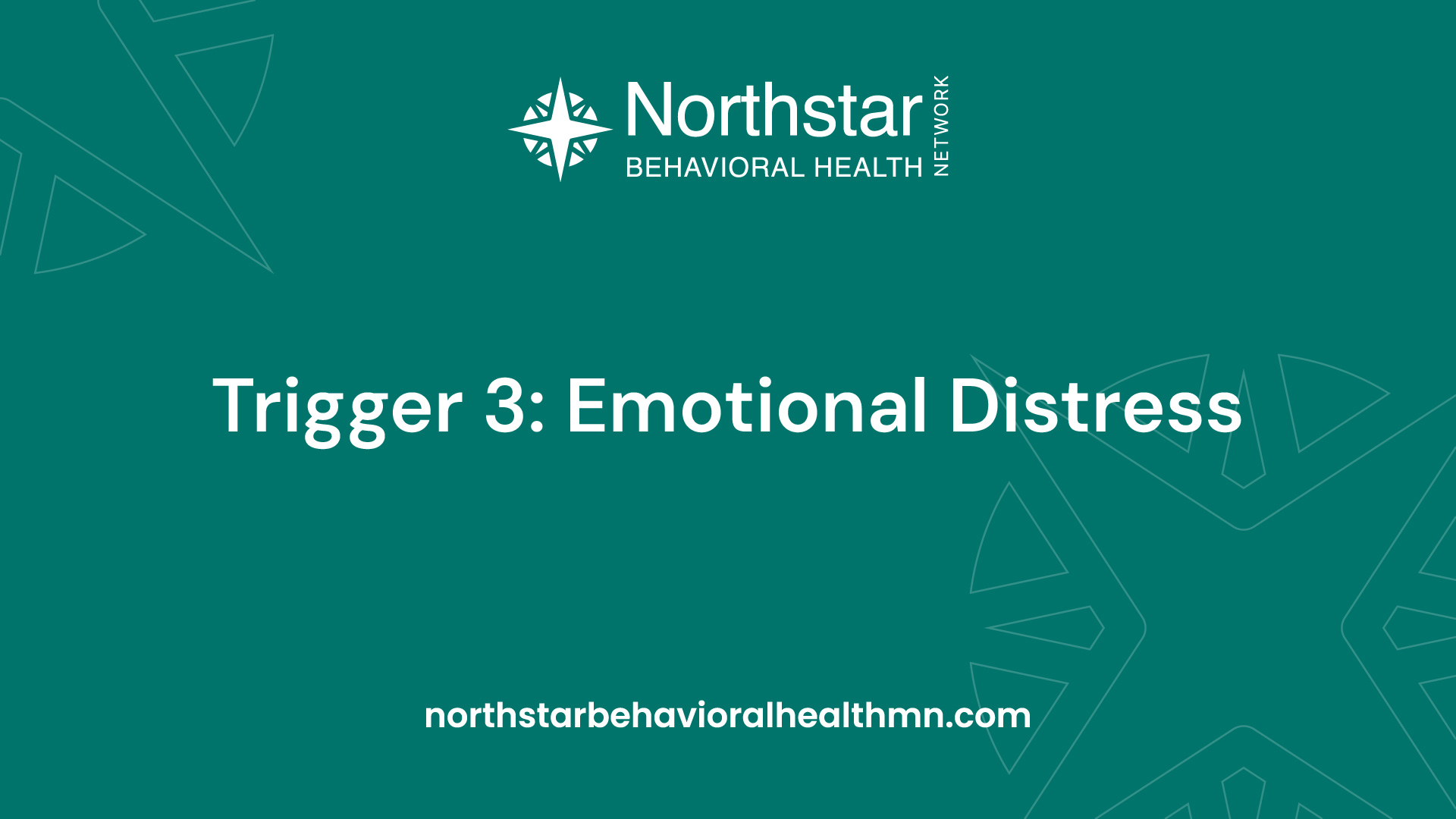
Emotional distress can significantly impact an individual's recovery journey. It represents one of the four main triggers for relapse in recovery. Understanding the emotional challenges faced during this process is crucial for maintaining sobriety.
Emotional Challenges in Recovery
Individuals in recovery often experience a range of emotions such as sadness, anger, anxiety, and frustration. These feelings can stem from various factors, including the loss of relationships, coping with stress, and adjusting to a new lifestyle. Recognizing these emotional challenges is essential, as they can lead to unhealthy coping mechanisms, including substance use.
Here’s a summary of common emotional challenges faced during recovery:
- Sadness: Feelings of loss or grief related to past experiences.
- Anger: Frustration over circumstances or setbacks.
- Anxiety: Worry about the future or fears of relapse.
- Frustration: Disappointment in progress or recovery setbacks.
Healthy Ways to Process Emotions
Finding healthy ways to process emotions is vital for preventing relapse. Here are several strategies individuals can implement:
- Journaling: Writing down thoughts and feelings can help clarify emotions and provide an outlet for expression.
- Talking to Someone: Connecting with a trusted friend, family member, or therapist can provide support and perspective.
- Mindfulness and Meditation: Practicing mindfulness techniques can help individuals stay present and manage overwhelming feelings.
- Physical Activity: Engaging in regular exercise releases endorphins, which can improve mood and reduce stress.
- Creative Outlets: Activities like painting, music, or crafting can serve as therapeutic outlets for emotions.
In addition to these strategies, participating in support groups can help individuals share their experiences and learn from others. For more insights on managing emotional distress during recovery, refer to the article on four important things about relapse. Understanding how to navigate emotional challenges is a key component in building resilience against relapse triggers.
Trigger 4: Overconfidence
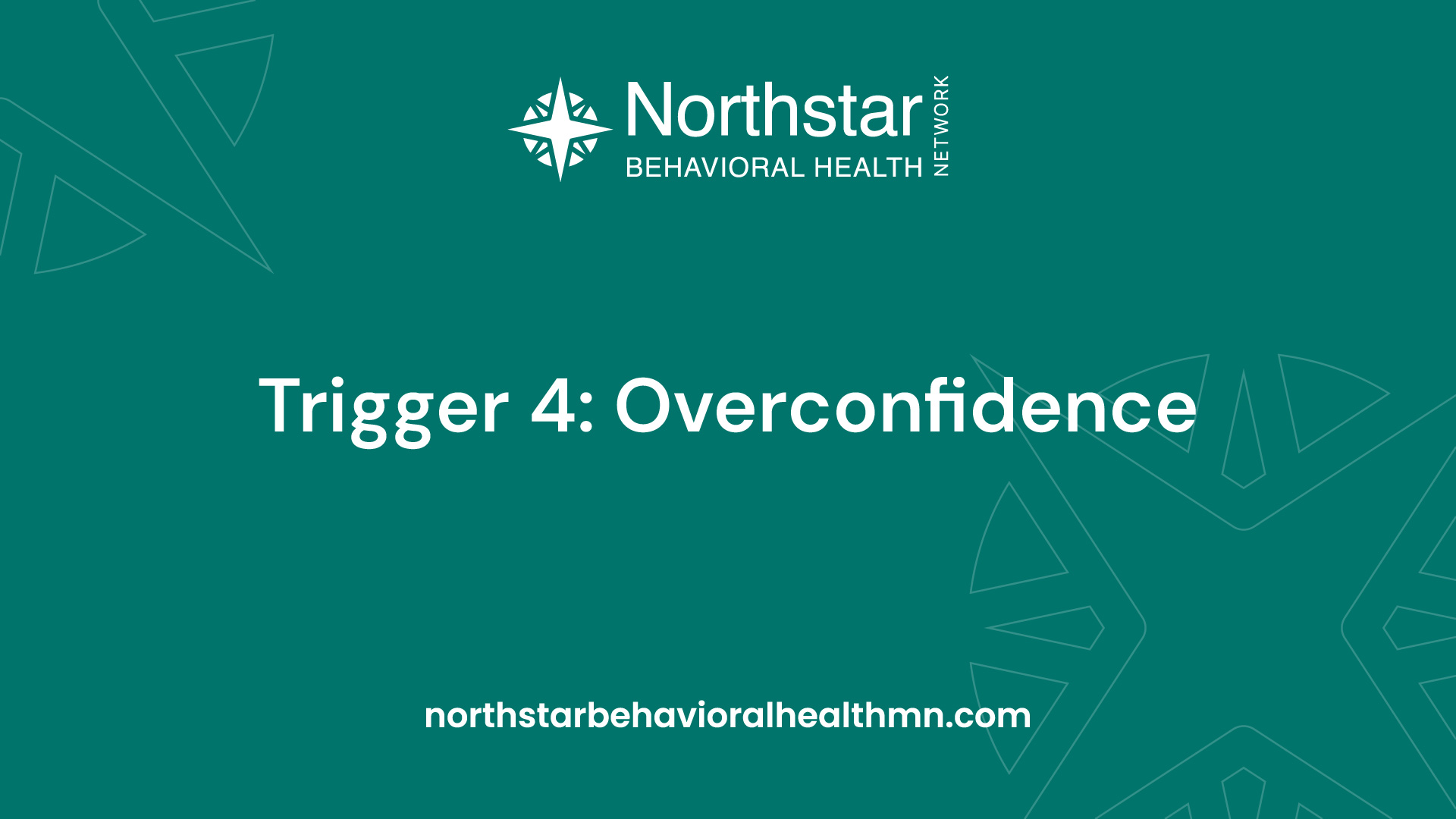
Overconfidence can be a subtle but dangerous trigger for relapse in recovery. Individuals who have made significant progress may feel invincible, leading them to underestimate the challenges they face. This false sense of security can create vulnerabilities that might increase the risk of returning to old habits.
Dangers of Overconfidence in Recovery
Overconfidence can manifest in several ways, such as believing that one can handle situations that previously led to substance use. This mentality can result in risky behaviors, such as attending social events where drugs or alcohol are present without precaution. Here’s how overconfidence can impact recovery:
- Skipping support group meetings: Loss of accountability.
- Ignoring coping strategies: Increased stress and vulnerability.
- Socializing in high-risk environments: Higher likelihood of relapse.
- Neglecting self-care routines: Deterioration in mental and physical health.
It is vital to recognize that recovery is a lifelong journey. Just because one has been sober for a period does not mean they are immune to triggers and cravings. Understanding this can help individuals stay grounded and focused on their recovery.
Maintaining Humility and Accountability
Humility is a crucial aspect of maintaining recovery. Acknowledging that recovery is an ongoing process can help individuals remain vigilant against the potential pitfalls of overconfidence. Here are some strategies to maintain humility and accountability:
- Stay Engaged with Support Systems: Regularly attend support groups or therapy sessions to reinforce commitment and accountability. Engaging with peers who understand the journey can provide valuable insights and encouragement.
- Set Realistic Goals: Establish achievable short-term and long-term goals in recovery. This practice can help individuals recognize their progress while staying aware of their limitations.
- Self-Reflection: Regularly reflect on personal experiences and challenges. Journaling or discussing feelings with a trusted friend can help maintain a grounded perspective.
- Seek Feedback: Encourage open communication with family and friends about behaviors and attitudes. Constructive feedback can serve as a reminder of the importance of humility in the recovery process.
- Educate Oneself: Continuously learn about addiction and recovery. Understanding the complexities of addiction can reinforce the need for ongoing diligence and humility.
By recognizing the dangers of overconfidence and implementing strategies to maintain humility, individuals can safeguard against the four main triggers for relapse in recovery. For further insights on this topic, visit four important things about relapse.
Strategies for Safeguarding Against Relapse
Building resilience and creating a comprehensive relapse prevention plan are vital components of maintaining recovery. These strategies help individuals navigate the challenges associated with the four main triggers for relapse in recovery.
Developing Resilience Skills
Resilience skills empower individuals to face difficulties and bounce back from setbacks. By developing these skills, they can better manage stress, peer pressure, emotional distress, and overconfidence. Here are some key resilience skills to cultivate:
- Emotional Regulation: Learning to manage emotions effectively to prevent overwhelming feelings.
- Problem-Solving: Developing strategies to address challenges and obstacles in a constructive way.
- Social Connection: Building a network of supportive relationships to share experiences and gain encouragement.
- Mindfulness: Practicing mindfulness techniques to stay present and reduce anxiety.
- Optimism: Maintaining a hopeful outlook can lead to better coping strategies and choices.
Incorporating these skills into daily life can help individuals remain focused on their recovery journey. For more insights on maintaining a healthy mindset, consider reading about four important things about relapse.
Creating a Personalized Relapse Prevention Plan
A personalized relapse prevention plan is essential for addressing individual needs and circumstances. This plan should include specific strategies tailored to the person's triggers and lifestyle. Key components to consider when creating a relapse prevention plan are:
- Trigger Identification: Recognizing personal triggers, such as stress or emotional distress.
- Coping Strategies: Listing effective coping mechanisms for each identified trigger.
- Support Resources: Identifying supportive friends, family, or recovery groups to reach out to during difficult times.
- Goals and Milestones: Setting achievable goals and celebrating progress along the journey.
- Emergency Contacts: Having a list of contacts for immediate support in case of a crisis.
By implementing a personalized relapse prevention plan, individuals can increase their chances of long-term recovery. This proactive approach helps them stay grounded and focused, even when faced with challenges. For additional resources on managing addiction, explore articles like good news for treating opioid dependence or ten ideas to help you give up alcohol.

.jpg)




.jpg)

